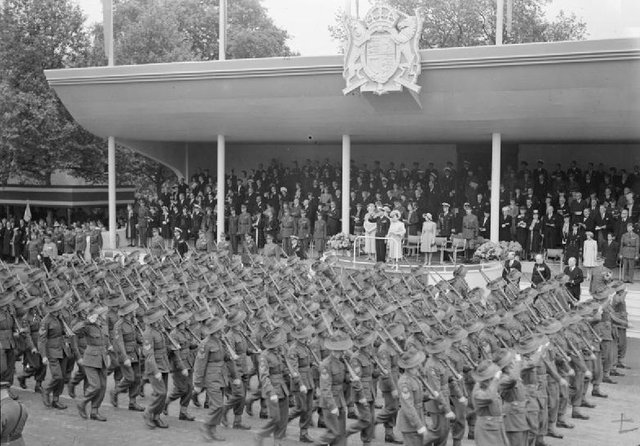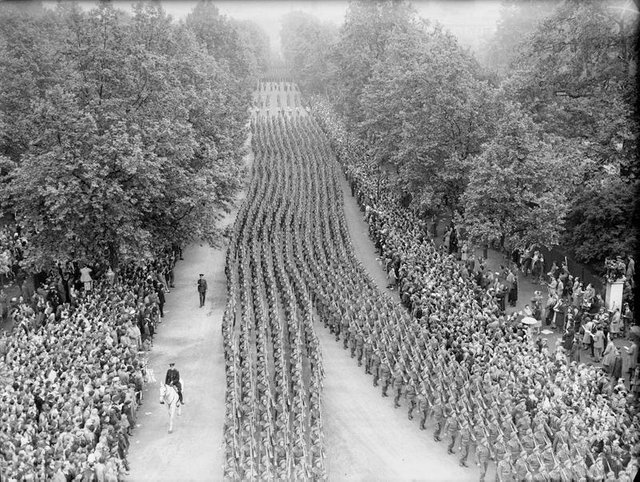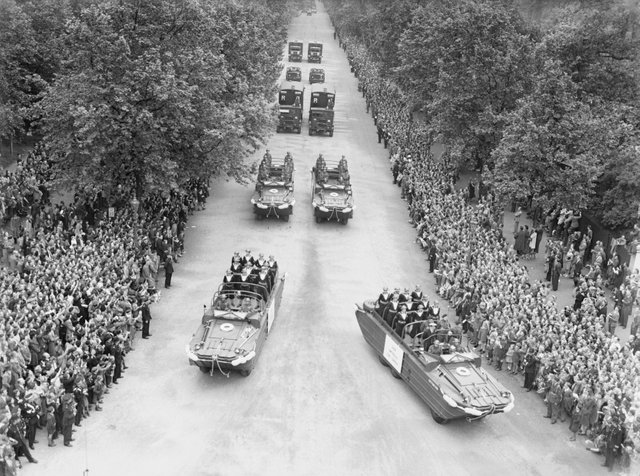#4 "08 - JUNE" in World HISTORY
1949 - In 1984, George Orwell's 1984 novel was published.

1984 (original title: Nineteen Eighty-Four) - a futuristic anti-utopia with numerous political undertones, written by George Orwell and published in 1949. The author wrote it under the influence of contact with the practical side of the Stalinist system, which was first encountered in Spain in 1936 (during the civil war), where he went as a journalist and sympathizer of the Republican party.
Some notions from this novel have penetrated the mass culture, for example Big Brother, newspeak or unperson - a politician away from influence or a citizen with hostile or unorthodox political views.
The entire audiobook:
For a while Orwell hesitated between the two titles of the book: Nineteen Eighty-Four (The Thousand Nine Eighty-Four) and The Last Man in Europe (The Last Man in Europe). Eventually, he decided on the first, following the advice of the publisher, Fred Warburg.
There are several hypotheses regarding the title of the book:
• the most widespread (having source in the information published by the American publisher of Orwell's works) states that 1984 is the reverse of 1948, in which the book was made; however, there is no document that would confirm it;
• for 1984, the hundredth anniversary of the founding of the Fabian Society fell;
• in the Żelazna stop (dystopijna novel by Jacek London) one of the key events for the story takes place in 1984.
• the action of the Napoleon novel from Notting Hill by Gilbert Keith Chesterton, one of Orwell's favorite writers, takes place in 1984.
• Prof. Peter Davidson suggested that 1984 may be associated with the person of Richard Blair, son of Orwell, who was born in 1944
1946 - A victory parade of Allied forces took place in London, to which soldiers of the Polish Armed Forces in the West were not allowed.
The BBC radio station criticized the choice of the day's parade as not reflecting the real day of victory. The station thought that the parade should be held at a different time, which would be more reminding of the victory.
Very large controversies during the parade caused the exclusion of Polish soldiers who, fighting in the Polish Forces in the West, were one of the most numerous fights on the side of the Allied forces. The only Polish combat organization invited to participate in the parade were pilots of 303 Squadron who were to march in the ranks of the RAF, but they refused after other Polish troops were not invited to the parade. Opposition leader Winston Churchill speaking in the House of Commons said:
"I express my deep regret that none of the Polish troops, who fought at our side in so many battles and who shed their blood for a common cause, were not allowed to participate in the Victory Parade. We will be thinking about this army on this day. We will never forget their bravery or their fighting feats that are related to our own fame at Tobruk, Cassino and Arnhem."



One of the main reasons that led to the exclusion of Poles from the parade was the fact that the British did not want to irritate relations with the Soviet Union, which considered People's Poland as its own sphere of influence. The government of Clement Attlee issued an invitation to the Provisional Government of National Unity (TRJN) to take part in the parade - Deputy Foreign Minister Hector McNeil at the meeting of the House of Commons explained:
"We have turned to both sides wanting to have representative branches of both governments. [...] Our compromise can be criticized from both sides, but I think that both governments and soldiers on both sides would consider this compromise the best we could have achieved under the given conditions. "
Dominated by the communists, the TRJN refused to send Polish Army soldiers to the parade, justifying the British authorities' permission to travel to General Bor-Komorowski to the USA. In fact, the Polish authorities were unwilling to expose themselves to Stalin, who did not send soldiers of the Red Army to the parade to London.
As a result, the Poles did not take part in the parade, which echoed in the relations.
1989 - The last death sentence in Czechoslovakia was executed.
What do you think about these events?